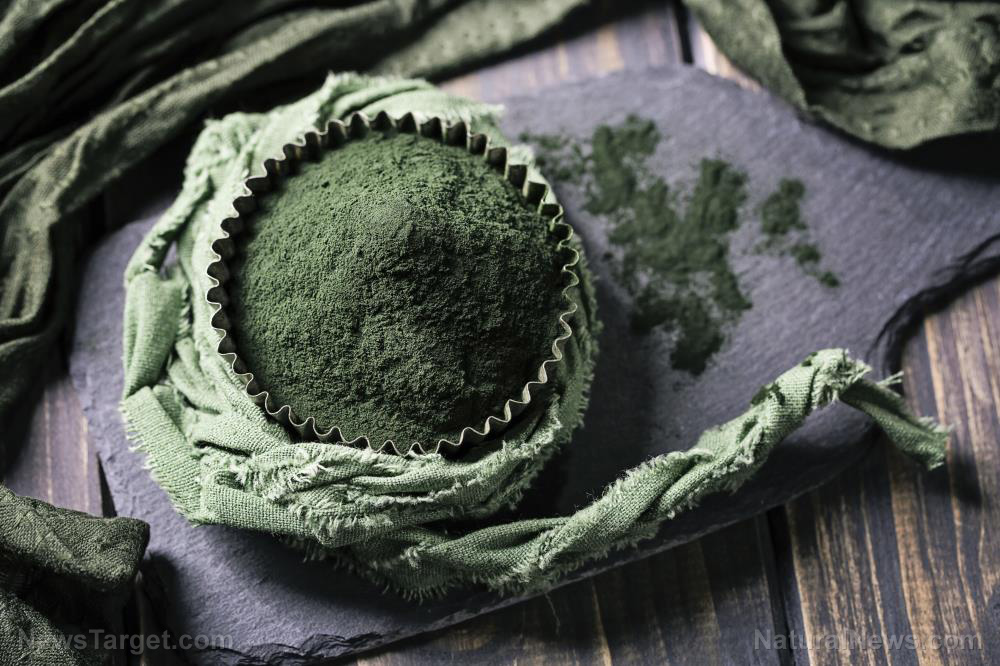4 Tips for avoiding skin cancer when you’re NOT in the sun
05/31/2019 / By Vicki Batts

Millions of people struggle with skin cancer every year. In fact, the Skin Cancer Foundation reports that more people will be diagnosed with some type of skin cancer in a single year than all other cancers combined. Estimates suggest that one out of every five Americans will have been diagnosed with a skin cancer by age 70. Most people know that too much sun isn’t good for their skin, but even health organizations fail to take note of other potential risk factors. When it comes to skin cancer prevention, the sole message most people receive is, “Stay out of the sun, and don’t get sunburn.”
While it is true that these things can influence your cancer risk, there are many other factors to consider that could be putting your health in jeopardy.
Skin cancer dogma
Many people believe that using sunscreen is the only way to prevent skin cancer. Mike Adams, founder of Natural News and creator of Brighteon.com, has been blowing the whistle on the fraudulent nature of the sunscreen industry for years. As the Health Ranger reported previously, scientific evidence shows that sunscreen chemicals actually promote cancer: By blocking UV radiation, sunscreen impedes the production of vitamin D in the skin.
Vitamin D is a valuable nutrient for many reasons — including cancer prevention.
“Meanwhile, the toxic chemical ingredients used in most sunscreen products are actually carcinogenic and have never been safety tested or safety approved by the FDA. They get absorbed right through the skin (a porous organ that absorbs most substances it comes into contact with) and enter the bloodstream,” Adams said.
The Health Ranger has also reported on the other toxic effects of sunscreen chemicals, which include hormone disruption in humans and the killing of coral reefs and other marine life.
“What’s truly astonishing is how people think using these toxic chemicals on their skin is somehow preventing cancer. In truth, it’s giving them cancer from chemical exposure. Instead of just skin cancer from UV exposure, it can give them brain cancer, liver cancer, kidney cancer or even myeloma,” Adams contends.
In spite of the obvious evidence of harm, major health organizations continue to recommend sunscreen as one of the only ways people can prevent skin cancer. In reality, lathering yourself up in a toxic sunblock is probably one of the worst things you can do for your health. But there are plenty of ways you can reduce your skin cancer risk, toxin-free.
Four ways to prevent skin cancer naturally
As Mind Body Green reports, there are four great tips and tricks for preventing skin cancer that don’t involve sunscreen.
First, get enough sleep. Your sleep cycle helps to regulate the hormone melatonin, which is essential for a number of bodily functions, like reproduction and hair growth. Melatonin is also key to skin health. As MBG reports, melatonin protects skin against the hazards of UV radiation, and is a very potent antioxidant. Research indicates it may scavenge free radicals better than vitamins A or C. Studies also show that melatonin prevents UVB skin damage, decreases inflammation and helps stimulate the production of other key antioxidants like glutathione.
Second, consider drinking coffee. As sources report, studies show coffee consumption can greatly influence your risk of skin cancer. Research has shown that just one cup a day can cut your melanoma risk by three percent, while drinking up to six cups a day can slash your risk by up to 30 percent.
Third, don’t smoke. Research shows that smoking can greatly increase your risk of skin cancer.
Last, but certainly not least, follow a healthy diet. Eat a rainbow of fruits and vegetables and avoid exposing yourself to toxic food additives, pesticides and other harmful ingredients whenever possible.
Learn more about how to prevent skin cancer and other ailments at Prevention.news.
Sources for this:
Tagged Under: alternative medicine, anticancer foods, disease prevention, healthy lifestyle, heathy living, prevention, remedies, skin cancer, sunscreen, toxic ingredients
RECENT NEWS & ARTICLES
FoodCures.News is a fact-based public education website published by Food Cures News Features, LLC.
All content copyright © 2018 by Food Cures News Features, LLC.
Contact Us with Tips or Corrections
All trademarks, registered trademarks and servicemarks mentioned on this site are the property of their respective owners.



















